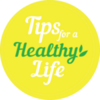
As we continue to weather the coronavirus (COVID-19) pandemic, relaxation can seem like an impossibility. While things like sheet masks, baths, or daily walks can be helpful, it’s easy to reach for a glass of wine or a beer to help calm down nerves instead. While there’s nothing wrong with having a drink after a long day if you’re not sober or in recovery, the degree to which you are relying on alcohol for relaxation is something to be mindful of—especially since, with the way things are right now, being home constantly without any sense of routine can make the temptation to drink stronger than usual.
But how do you know if your drinking habits are becoming a problem? HelloGiggles talked to several mental health experts to unpack how drinking can turn into an issue when you start relying on it as a coping mechanism to deal with the stress of social isolation.
Why so many people are drinking more than usual these days?
According to clinical psychologist Dr. Joshua Klapow, the isolating nature of social distancing can exacerbate anxiety and leave us feeling powerless in our current circumstances. As a result, it can be difficult to practice healthy habits (like honing a meditation practice, for instance) when we know that we can instead opt for simpler, quicker fixes like drinking.
“Unlike other ‘disasters’ where the damage occurs quickly and then there is the aftermath, we have entered a disaster that is slow moving, invisible for some, and growing,” Dr. Klapow tells HelloGiggles. “Instead of producing intense anxiety for a short period of time, it produces—for many people—moderate levels of anxiety with spikes (when new numbers come out, when new restrictions are placed, when someone they know falls ill).”
And when anxiety is coupled with our current limited range of freedom, Dr. Klapow adds, “the feasibility of drinking more frequently increases. We are anxious, bored, can’t leave the house, don’t need to be in at work at a certain time. All of these will prompt some to turn weekend drinking into weekday drinking.”
Ruby Mehta, clinical advisor at Tempest, a modern and digital sobriety program, adds that our lack of in-person connection with others can also lead to increased drinking. “Humans are social creatures, and feelings of loneliness can increase stress hormones throughout your body. This is only exacerbated in the current environment where we are asked to stay at home,” Mehta tells HelloGiggles.
If your usual method of unwinding from stress is taking an exercise class or dining with friends at a restaurant, the lack of access to those options can leave you straining to find new ways to deal with heightened anxiety. And since we can still obtain alcohol relatively easily, despite tight restrictions around non-essential businesses throughout the country, it can seem like a viable replacement for our previous strategies.
When does drinking become a problem?
It can be hard to tell since, for many people, becoming dependent on alcohol isn’t always a dramatic turn from a cocktail or two a day to frequent binge drinking. And with the loose, undefined nature of our days right now, potentially problematic habits can become even more difficult to decipher. Experts say that there are some things to look out for, though, if you’re worried that you’re slipping into uncharted territory.
“If you feel that you are being controlled in any way by the alcohol use (rather than feeling as if you are in control), you’ve entered the realm where alcohol use is a problem,” says Dr. Carla Manly, clinical psychologist and author of Joy From Fear: Create the Life of Your Dreams by Making Fear Your Friend. If you can still consume alcohol in moderation—meaning one or two drinks a day, at most—Dr. Manly says you’re more than likely not dependent on it. But, the key is being objective when analyzing your alcohol use rather than making excuses for an increase in drinking.
A simple way to evaluate your habit is to examine the emotions and associations you have surrounding alcohol. “If you feel anxiety and are automatically reaching for a drink, this is already a sign that you are in dangerous territory,” Dr. Jud Brewer, a neuroscientist, addiction psychiatrist, and director of research and innovation at the Mindfulness Center at Brown University, tells HelloGiggles. “Another sign is when you feel that you can’t relax unless you have a drink.”
Still, “people can become physically dependent on alcohol and manage their day-to-day activities for a period of time,” notes Dr. Klapow. Being cognizant of any changes in your mood and behavior is essential; he adds that experiencing certain physical sensations like nervousness, headaches, muscle aches, increased stress, and irritability when you’re not drinking can be a clue that your alcohol consumption is teetering on dependence.
If you haven’t spotted any notable changes, though, try to determine if you are handling circumstances differently because of the stress caused by the pandemic. Ask yourself: Have social distancing and fears surrounding the pandemic created an an anxiety that’s hard to cope with, which may be prompting you to drink more? From there, evaluate if your relationship to alcohol has become cyclical.
“Anxiety [can] trigger someone to drink, which gives their brain the ‘reward’ of not only feeling intoxicated but also feeling less anxious,” Dr. Brewer explains. “The problem is that this doesn’t fix the underlying issue that caused the anxiety in the first place, which is often exacerbated by the drinking and avoidance. The brief relief fades and another habit loop is triggered as soon as the anxiety comes back.”
What to do to cope with stress instead of drinking:
According to Dr. Klapow, if social distancing is driving your anxiety—and thus your drinking—there are a few things you can do to address your stress while still abiding by mandates made by the government and the CDC to stay inside. “Social distance but don’t isolate yourself,” he says. “Make sure you are connecting with others daily, even if that is remotely. Don’t spend all day, every day alone.”
Similarly, Mehta says that finding ways to contact those you love is crucial in this time. “By chatting with a supportive friend on the phone or virtually, our stress levels are naturally lowered as we feel human connection,” she says.
Additionally, exercise—even just a daily walk in an uncrowded area—can help to “to regulate your autonomic nervous system, which will reduce anxiety,” Dr. Klapow says. If you’re not comfortable going outside, online exercises courses or apps offering free workouts like Down Dog, Orangetheory, or Obe Fitness are great alternatives to get yourself moving.
Most importantly, recognize when your anxiety may be getting too difficult to handle, even if it’s not manifesting as drinking too much. “Be brave enough to acknowledge that anxiety is taking control, and seek mental health care,” Dr. Klapow says. “Anxiety is one of the top presenting symptoms for mental health professionals. It can be treated and managed, but you need to listen to yourself or others around you and be willing to go get help.”
Virtual therapy is a great option that many mental health practitioners are utilizing right now to get in touch with patients and do sessions remotely. Apps like Talkspace, BetterHelp, and the Crisis Text Hotline can also be of use if you are seeking help but don’t know where to start. Tempest can also be a resource as it offers virtual support groups that are easily accessible at home. And if you live in New York, Governor Cuomo recently announced that 6,000 mental health practitioners have volunteered to offer free online services; you can call 844-863-9314 to schedule an appointment.
Drinking doesn’t have to be your main method of dealing with stress right now. If you’re concerned about your habit, know that you are not alone in your struggle or your fear—there are plenty of people and resources ready to help you. You just need to take the first step and reach out.
